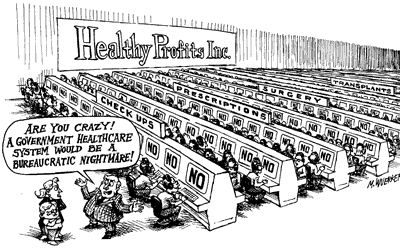
Opponents of physician-assisted suicide are fired up this summer, and rightfully so, over an ethically questionable provision of the Oregon Health Plan. The conflict came to light in a recent report in The Register-Guard of Eugene. The newspaper described the sad plight of Barbara Wagner, a 64-year-old Springfield woman with lung cancer. After her oncologist prescribed a cancer drug that would cost $4,000 a month, the newspaper reported, “Wagner was notified that the Oregon Health Plan wouldn’t cover the treatment, but that it would cover palliative, or comfort, care, including, if she chose, doctor-assisted suicide.”
That presents an unacceptable conflict. The state health program should not be in the position of denying chemotherapy to terminally ill patients while offering to pay the cost of helping them die. The dust-up over this conflict comes at a poor time for backers of a Washington state initiative that mirrors Oregon’s aid-in-dying law. That’s too bad, as Wagner’s story could cloud what Washington voters really ought to know about Oregon’s 10 years of experience with the law. Critics’ dark warnings about it have not panned out. Instead, the debate over it has revolutionized public attitudes about palliative care at the end of life, and Oregon now stands at the forefront. Just this month, researchers at the University of Wisconsin rated the pain-management policies of Oregon and four other states as best in the nation.
In Wagner’s case, administrators of the Oregon Health Plan had to make a difficult call. But that’s what they do every day in performing the tough, thankless job of rationing government-paid health care to the needy. What’s unacceptable, however, is that Wagner’s rejection letter included the offer of payment for doctor-assisted death. Such notification creates at least the appearance of an ethical conflict: state encouragement of dying as a cost-saving measure. As the only state that both allows assisted suicide and tries to ration health care, Oregon has created a fine ethical line for state officials to navigate.















#32, Tommy,
#30, Who’s Rush and Billo?
They are wing nut icons of Right Wing Truth, Justice Denied, And the American Neo-con way.